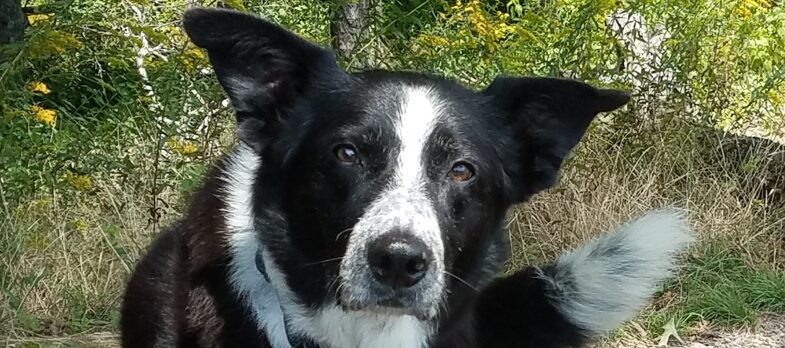Tucker was a great dog. However, you have to understand he was my wife’s dog. Cheryl had helped rescue Tucker from a life that was sure to be brutal and short. In return, Tucker rewarded her with a devotion that only dogs can give.
By the end of his life, though, I owed that dog a debt. Cheryl became ill in 2009 and much of it she had to spend in bedrest. Worried, I couldn’t help but hover, to ask if there was anything she needed, if anything was wrong, was there anything I could do.
Tucker did not have this problem. He would lay down with her, on bed or couch or wherever, and simply be with her. He would, after a long time of forbearance, perhaps nuzzle her in a desire for a walk or, maybe, food. But that was all.
Tucker did what I couldn’t do and, if for nothing else, I owe that dog a debt. But he truly secured a place in my heart when he began to die. Nothing unexpected, just old age. His mind was the first thing to go. Doggy Alzheimer’s, I guess. Tucker, though, never lost sight of Cheryl, even as he forgot everything else. He might have forgotten toys or food times or people or where he was, but he always knew where Cheryl was. If he didn’t, he was always looking for her.
And he learned to play me like a fiddle. In the absence that became his brain, he learned that he could walk up to me with a vacant stare and I would be concerned enough that I would give him something: Pettings, food, a walk, something good. So he would do that whenever he was bored or confused. Which was basically any time he wasn’t sleeping.
So I did for Tucker what I couldn’t do for Cheryl. I gave him comfort and kindness in a way that he understood and, even though I was a stranger at the end, I believe he loved me for it.
That makes two debts I owe him.
See the author’s published work here.
Related Posts
The American: Trouble on All Sides (pt. 2) Next Post:
The America: Trouble on All Sides (pt. 2)





















